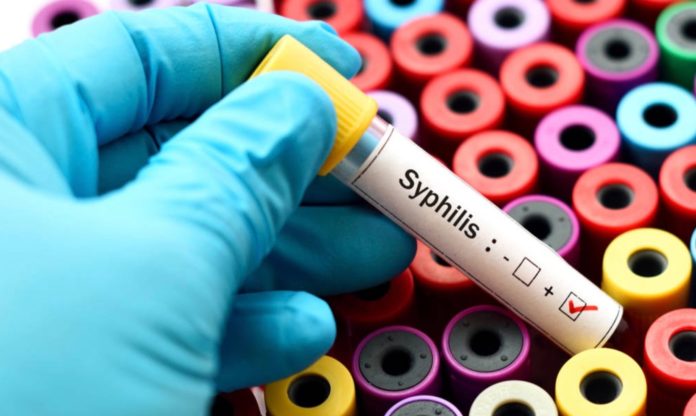
Photo: Getty Images
According to the Missouri Department of Health, there has been an increase in the number of cases of syphilis and congenital syphilis in recent years.
According to new data from the Missouri Department of Health and Senior Services, the number of syphilis infections in the state climbed by 259 percent between 2015 and 2021.
In 2021 alone, Missouri reported 63 cases of congenital syphilis, the highest number since 1994. In the same year, congenital syphilis infected 11 people in St. Louis County and 11 people in St. Louis City. In contrast to 2017, there were just three similar occurrences in the county and one in the city, according to Fox 2 reports.
Following an increase in cases, health officials encourage individuals to get tested for syphilis.
TRENDING: Pima County Arizona Democratic Party: “F*ck the 4th”
More from Fox2 Now:
St. Louis city and county health officials are urging people to get tested for syphilis if they are sexually active or considering pregnancy. Syphilis is a sexually transmitted infection that could lead to serious complications if untreated. While syphilis can be treated and cured with antibiotics, health leaders say many cases go undiagnosed and untreated.
“A single case of congenital syphilis is heartbreaking because it is completely preventable,” said Dr. Faisal Khan, Acting Director of the St. Louis County Department of Public Health. “Given the high rates of syphilis in the St. Louis region, I urge all those who are pregnant or considering pregnancy to get themselves and their partners tested immediately.”
“Our goal is to have zero new cases of congenital syphilis in St. Louis – not even one,” said Dr. Matifadza Hlatshwayo Davis, the Director of the St. Louis City Department of Health. “The rates of syphilis among women of childbearing age are rising faster than any other group – and this has led to the unfortunate rise in congenital syphilis as well.”
Congenital syphilis can cause miscarriages, premature births, stillbirths, or deaths of newborn babies. Those babies can experience serious health complications, including physical and neurological disabilities.
Read the joint statement below issued by St. Louis City and County in response to the CDC data on the growth of STIs.


